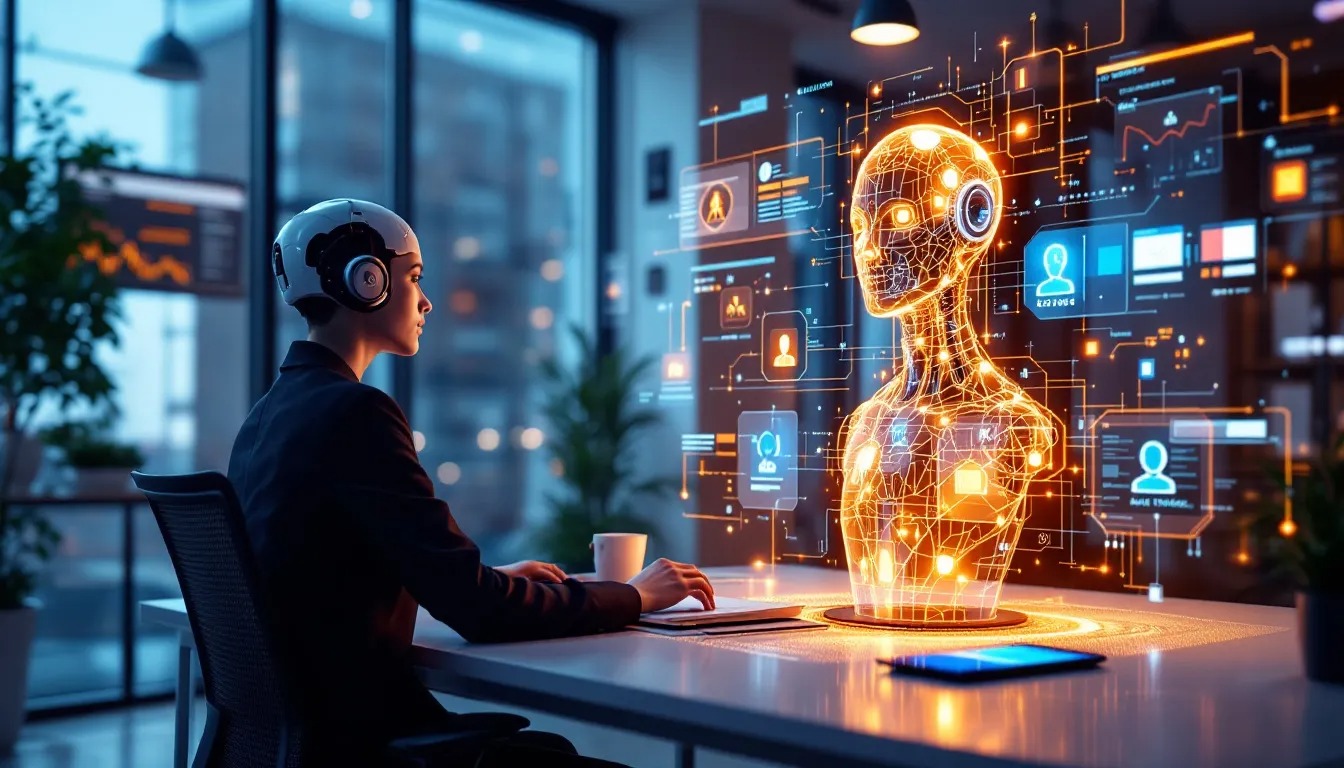Artificial Intelligence (AI) agents are rapidly transforming the way we interact with technology, automating complex tasks, and enhancing decision-making processes across industries Productivity with AI. But what exactly are AI agents, and why are they so important?
What Are AI Agents?
An AI agent is a software program or system designed to perceive its environment, make decisions, and take actions autonomously to achieve specific goals. Unlike simple programs that follow fixed instructions, AI agents exhibit some level of intelligence, adapting their behavior based on inputs, experiences, or changes in their environment.
In essence, an AI agent acts like a digital assistant that can sense, reason, learn, and act — often without human intervention.
Types of AI Agents
-
Simple Reflex Agents
These operate based on current percepts only and follow predefined rules. For example, a thermostat adjusting temperature based on current room conditions. -
Model-Based Reflex Agents
These keep track of the environment’s state to make better decisions, like a self-driving car that remembers past obstacles. -
Goal-Based Agents
These agents act to achieve specific goals, planning actions ahead. For instance, a robot vacuum that plans its cleaning route. -
Utility-Based Agents
These agents optimize for the best possible outcome based on a utility function, balancing multiple objectives — like AI in financial trading. -
Learning Agents
These improve their performance over time by learning from experience, such as virtual assistants improving their speech recognition accuracy.
Applications of AI Agents
AI agents are already everywhere, shaping various sectors:
-
Customer Service: Chatbots and virtual assistants provide instant support and personalized experiences.
-
Healthcare: AI agents assist doctors with diagnosis, patient monitoring, and drug discovery.
-
Finance: Automated trading agents analyze market data to execute trades at high speed.
-
Smart Homes: Agents control lighting, heating, and security based on user preferences.
-
Autonomous Vehicles: Self-driving cars use AI agents to navigate and respond to traffic conditions.
Benefits and Challenges
The rise of AI agents offers many benefits:
-
Efficiency: Automating repetitive or complex tasks saves time and reduces errors.
-
Scalability: AI agents can handle vast amounts of data and interactions simultaneously.
-
Personalization: They adapt to individual user needs, providing customized solutions.
However, challenges remain:
-
Ethical Concerns: Ensuring AI agents make fair, unbiased decisions is critical.
-
Security Risks: Autonomous agents can be vulnerable to cyber attacks.
-
Transparency: Understanding how AI agents make decisions (explainability) is necessary for trust.
The Future of AI Agents
As AI research advances, AI agents will become more sophisticated, capable of handling more nuanced and creative tasks. Emerging areas include multi-agent systems, where multiple AI agents collaborate or compete, and integrating emotional intelligence for more human-like interactions.
In conclusion, AI agents represent a powerful intersection of perception, reasoning, and action. They are not just tools but intelligent collaborators shaping the future of work, life, and innovation.
